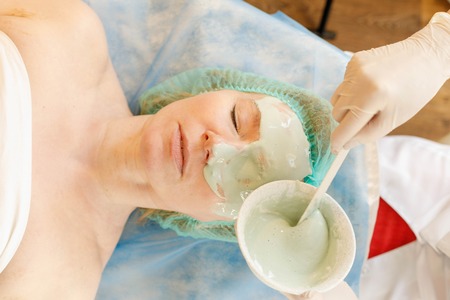The Rise and Risks of Greenwashing in Britain’s Beauty Industry
In recent years, the UK’s beauty and skincare market has seen an explosion of “green” and “eco-friendly” claims. Walking through the aisles of Boots or browsing online shops, I often find myself surrounded by lush packaging adorned with leaves, earthy tones, and buzzwords like “natural,” “organic,” and “clean.” At first glance, it feels reassuring—as if every jar and bottle is a step towards a more sustainable future. However, beneath this verdant façade lies a growing problem: greenwashing. Many brands leverage these eco-conscious signals to attract consumers who genuinely want to make ethical choices, but their sustainability claims are often more about marketing than meaningful environmental action. This trend creates a maze of confusion for well-intentioned shoppers who want to support truly responsible products but struggle to distinguish between genuine efforts and clever branding tactics. As someone passionate about both aesthetics and authenticity, I’ve experienced firsthand how difficult it can be to sift through the noise and identify which products actually deliver on their promises. The rise of greenwashing in Britain’s beauty industry not only undermines trust but also risks slowing real progress in sustainability by making it harder for consumers to make informed decisions.
2. Understanding Sustainability: What Does ‘Truly Sustainable’ Mean in the British Context?
When I first began exploring sustainable aesthetic products here in Britain, I quickly realised that the word “sustainable” can mean many things. In the UK, truly sustainable brands go beyond buzzwords and deliver on strict standards at every stage—from ingredient sourcing to packaging disposal. But how can you tell if a product lives up to its green claims? Let’s take a closer look at what defines genuine sustainability in the British context.
Ingredient Sourcing: Local, Ethical, and Transparent
For British consumers, truly sustainable beauty starts with traceable ingredients. Ethical sourcing means prioritising locally-grown botanicals when possible, supporting British farmers, and ensuring that global ingredients are fair-trade certified. Transparency is key—brands should clearly state where their raw materials come from and how they’re harvested.
Packaging: Recyclable, Refillable, or Compostable?
The next step is packaging. Here in the UK, there’s growing demand for minimal, recyclable, or refillable packaging. Compostable options are gaining popularity too, especially among indie brands committed to closing the loop. The best brands offer clear instructions for proper disposal or return schemes that encourage customers to send back empties for reuse.
British Sustainability Certifications & Regulations
One of the most helpful ways to identify authentic eco-friendly products is through trusted certifications and compliance with local regulations. Below is a summary of key British standards:
| Certification/Regulation | Description | What It Means for Consumers |
|---|---|---|
| Soil Association Organic | UK’s leading organic certification; ensures ingredients are organically grown and processed sustainably | Guarantees a high level of environmental care and ingredient purity |
| Leaping Bunny | Cruelty-free standard recognised across Britain and Europe | No animal testing at any stage of production—look for this logo! |
| Plastic Free Trust Mark (A Plastic Planet) | Identifies products truly free from plastic packaging | Makes it easier to avoid hidden plastics in your beauty routine |
| B Corp Certification | Awarded to businesses meeting rigorous social and environmental standards | Shows commitment to balancing profit with purpose across all operations |
| UK REACH Regulation | Chemical safety standard controlling substances used in cosmetics and packaging within the UK market | Protects health and environment by limiting harmful ingredients |
Navigating these labels can feel overwhelming at first, but I’ve found that taking a moment to check for these certifications is worth it—both for peace of mind and for making a positive impact. In my experience, truly sustainable British brands wear their credentials proudly and make it easy for consumers to make informed choices.

3. The Hallmarks of Authentic Eco-Friendly Aesthetic Products
When I first began my journey towards more sustainable beauty choices in Britain, I quickly realised the importance of being able to spot products that are truly eco-friendly, rather than those merely sporting a green label for marketing’s sake. To help you navigate this landscape, let’s dive into the key qualities that genuinely sustainable aesthetic products embody—and the red flags that signal greenwashing.
Cruelty-Free Claims: More Than Just a Bunny Logo
True cruelty-free products go beyond simply displaying a rabbit icon on their packaging. In Britain, look for recognised certifications such as Leaping Bunny or Cruelty Free International, which guarantee that no animal testing has occurred at any stage of product development. Beware brands using vague phrases like “not tested on animals” without third-party verification—these can be misleading, especially if their suppliers aren’t held to the same standard.
Vegan Formulas: Checking Ingredients With Care
A vegan label should mean no animal-derived ingredients whatsoever, but some brands stretch this definition. Always check for clear ingredient lists and reliable vegan certification (such as The Vegan Society). Watch out for commonly overlooked ingredients like beeswax or carmine, which often sneak into formulations but don’t align with vegan values.
Minimal and Recyclable Packaging: Less Is More
Authentically sustainable British brands tend to embrace minimalist packaging—think glass jars, aluminium tins, or recycled paper boxes. Excessive layers, non-recyclable plastics, or over-the-top decorative elements are warning signs that eco-friendliness is more about appearance than substance. I personally love discovering refill schemes or return-and-reuse initiatives, which show a real commitment to reducing waste.
Transparent Supply Chains: Full Disclosure Builds Trust
One of the most telling markers of genuine sustainability is transparency. Brands should openly share information about ingredient sourcing, manufacturing processes, and labour practices. In the UK, companies proudly supporting Fairtrade or local growers stand out for their ethical approach. If details about origins and supply chains are vague or unavailable, consider it a red flag—genuine change is always rooted in openness and accountability.
Spotting Red Flags: When to Think Twice
If a product offers grand eco-claims without specific certifications or verifiable evidence—or if it relies on buzzwords like “natural” without context—it’s wise to dig deeper. Remember: authentic sustainability in Britain isn’t just about looking good on the shelf; it’s about honest practices behind the scenes and a visible effort to tread lightly on our planet.
4. Personal Encounters: Navigating the High Street for Honest Beauty
My journey towards sustainable beauty in Britain began on a rainy Saturday morning in Brighton’s bustling Lanes, a place where high street staples and independent boutiques nestle side by side. Armed with a reusable tote and a sceptical eye, I set out to see whether everyday shopping could lead me to truly eco-friendly choices—or if it would simply reveal more clever greenwashing.
I first stepped into a well-known high street chain, instantly greeted by shelves awash with labels proclaiming “eco,” “natural,” and “vegan.” At first glance, it was impressive—but as I scanned the ingredient lists and packaging details, cracks appeared. Biodegradable claims were often vague, with some products wrapped in layers of plastic or sporting ingredients sourced from far-off continents. It became clear that buzzwords often outpaced transparency.
Next stop: an independent apothecary, its windows adorned with dried flowers and handwritten signs championing British-made skincare. Here, the shopkeeper eagerly explained the provenance of each product—local beeswax balms, refillable glass bottles, and soaps cut fresh from large blocks. The difference was palpable: not only were the products low-impact, but the ethos extended to every corner of the shop. Yet, even here, some brands struggled to provide full life-cycle information or third-party certifications.
Comparing My Experiences on the British High Street
| Shop Type | Sustainability Claims | Transparency | Packaging | Certifications |
|---|---|---|---|---|
| High Street Chain | Buzzwords: “Eco,” “Vegan” | Limited; often vague | Mostly plastic, some recyclable options | Few third-party labels |
| Independent Boutique | Emphasis on local & refillable | Open discussion; some gaps remain | Mainly glass/paper, refill schemes | Occasional Soil Association or B Corp marks |
This hands-on comparison reinforced how vital it is to look beyond marketing gloss—especially in Britain’s diverse retail landscape. While high street chains offer accessibility and price advantage, independents bring a personal connection and genuine commitment to local sustainability. However, both have room for improvement: clearer standards and stricter regulation are needed to help shoppers like me make informed decisions.
The key takeaway from my British high street adventure? Always ask questions, seek out local stories behind the products, and remember that true sustainability is about more than just a pretty label—it’s about honesty at every step of the journey.
5. Celebrating British Brands Leading the Way
Amidst the sea of green claims, some UK beauty brands and local artisans are truly redefining what it means to be sustainable. Their commitment goes far beyond recyclable packaging or clever marketing; it’s woven into every step of their process, from sourcing to production to community engagement.
Homegrown Innovation and Transparency
Take for example UpCircle Beauty, a London-based company that transforms coffee grounds and discarded fruit stones into luxurious skincare. Their circular approach not only reduces waste but also supports local cafés, creating a beautiful synergy between sustainability and urban life. Each product tells a story—of origins, partnerships, and environmental responsibility—that feels genuinely British in its ingenuity and transparency.
Championing Local Ingredients
Brands like Pai Skincare are equally inspiring, carefully selecting organic British botanicals for their gentle formulas. By working with UK farmers and maintaining strict traceability, they ensure purity while nurturing our countryside’s biodiversity. The result? Products that feel as fresh as a walk through a Cornish meadow, and a supply chain that supports rural communities.
Artisans Making an Impact
The movement isn’t limited to big names. Across Britain, independent makers—think coastal soap crafters in Devon or herbal apothecaries in Yorkshire—are championing refill schemes, biodegradable packaging, and low-energy production methods. Many host workshops or collaborate with local charities, making sustainability not just a buzzword but a shared value that uplifts the whole community.
Spotlighting these trailblazers gives me hope: here is proof that genuine change is possible when brands root themselves in ethical practices and celebrate their local heritage. As consumers, supporting such businesses feels not only rewarding but deeply personal—a chance to become part of Britain’s evolving story of beauty and environmental stewardship.
6. Tips for British Consumers: Making Informed, Sustainable Choices
Living in Britain, I’ve discovered that navigating the world of sustainable aesthetic products is both a journey and an education. The UK market is brimming with brands claiming “eco-friendly” or “natural” credentials, but it takes a keen eye and some local savvy to separate genuine efforts from clever greenwashing. Here’s how you can make more conscious, beautiful choices—without falling for marketing fluff.
Look Beyond Buzzwords
British shelves are full of tempting labels—“green,” “organic,” “ethical”—but these words aren’t regulated and can be misleading. Always check for recognised certifications such as the Soil Association Organic standard, Fairtrade Mark, or B Corp certification. These give real assurance that products meet stringent sustainability criteria relevant to the UK context.
Get Familiar with Ingredient Lists
Reading a label carefully is your first defence against greenwashing. In beauty and home aesthetics, ingredients matter just as much as packaging. Choose products with short, transparent ingredient lists you can actually pronounce. Avoid those with vague terms like “fragrance” or “parfum,” which often conceal synthetic chemicals not aligned with sustainable values.
Investigate Packaging and Local Sourcing
In true British fashion, pay attention to packaging—opt for brands using recycled, recyclable, or refillable options. Supporting locally made goods reduces carbon footprint and celebrates British craftsmanship, adding a unique narrative to your aesthetic choices. Many small UK brands lead the way here, offering thoughtful design alongside genuine eco-credentials.
Challenge Brands & Ask Questions
Don’t be afraid to reach out to companies via social media or email—ask about their sourcing practices, supply chain transparency, and commitments to reducing waste. Genuine sustainable brands are usually proud to share detailed information and will respond thoughtfully to consumer queries.
Balance Sustainability with Personal Aesthetics
Lastly, remember that sustainability isn’t about sacrificing beauty or style—it’s about enriching your life with objects that tell meaningful stories and tread lightly on the planet. Seek out timeless designs over fleeting trends; invest in quality pieces that last and bring joy every day. By making informed choices rooted in both sustainability and personal taste, you’ll not only beautify your space but also contribute positively to Britain’s ongoing journey from greenwashing to authentic change.


